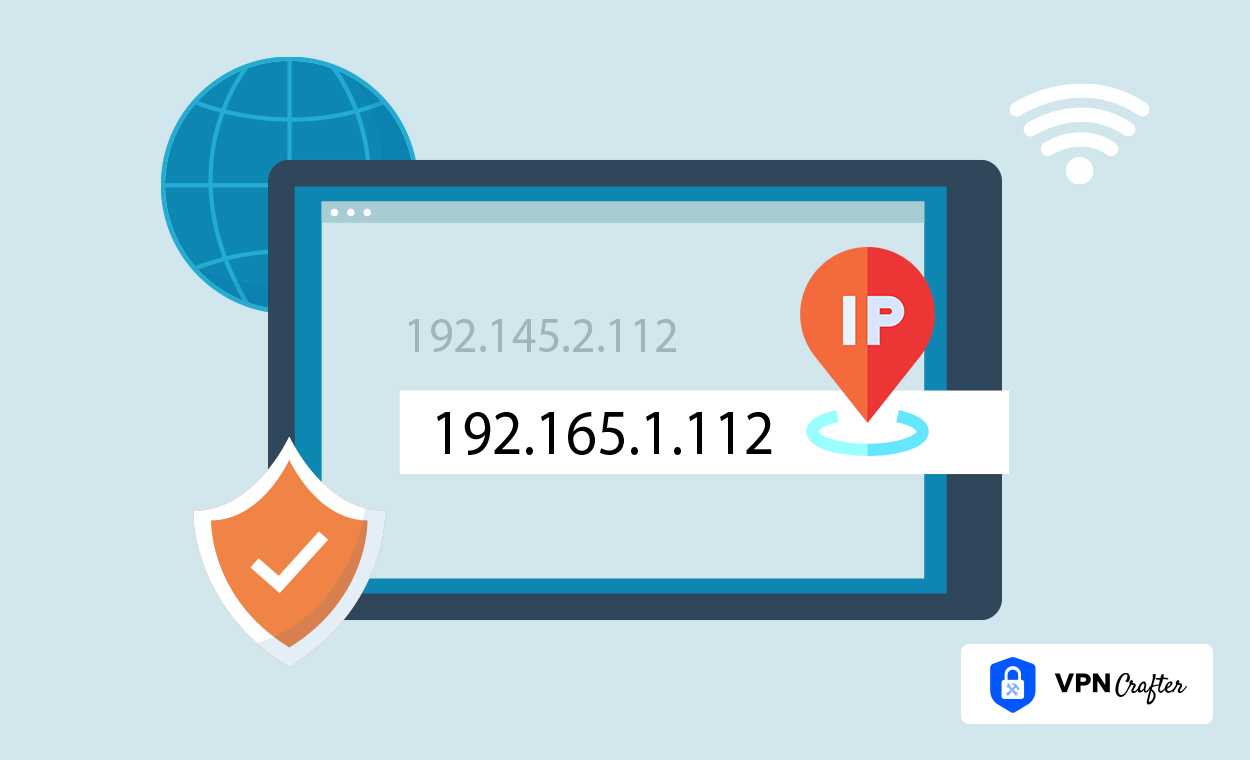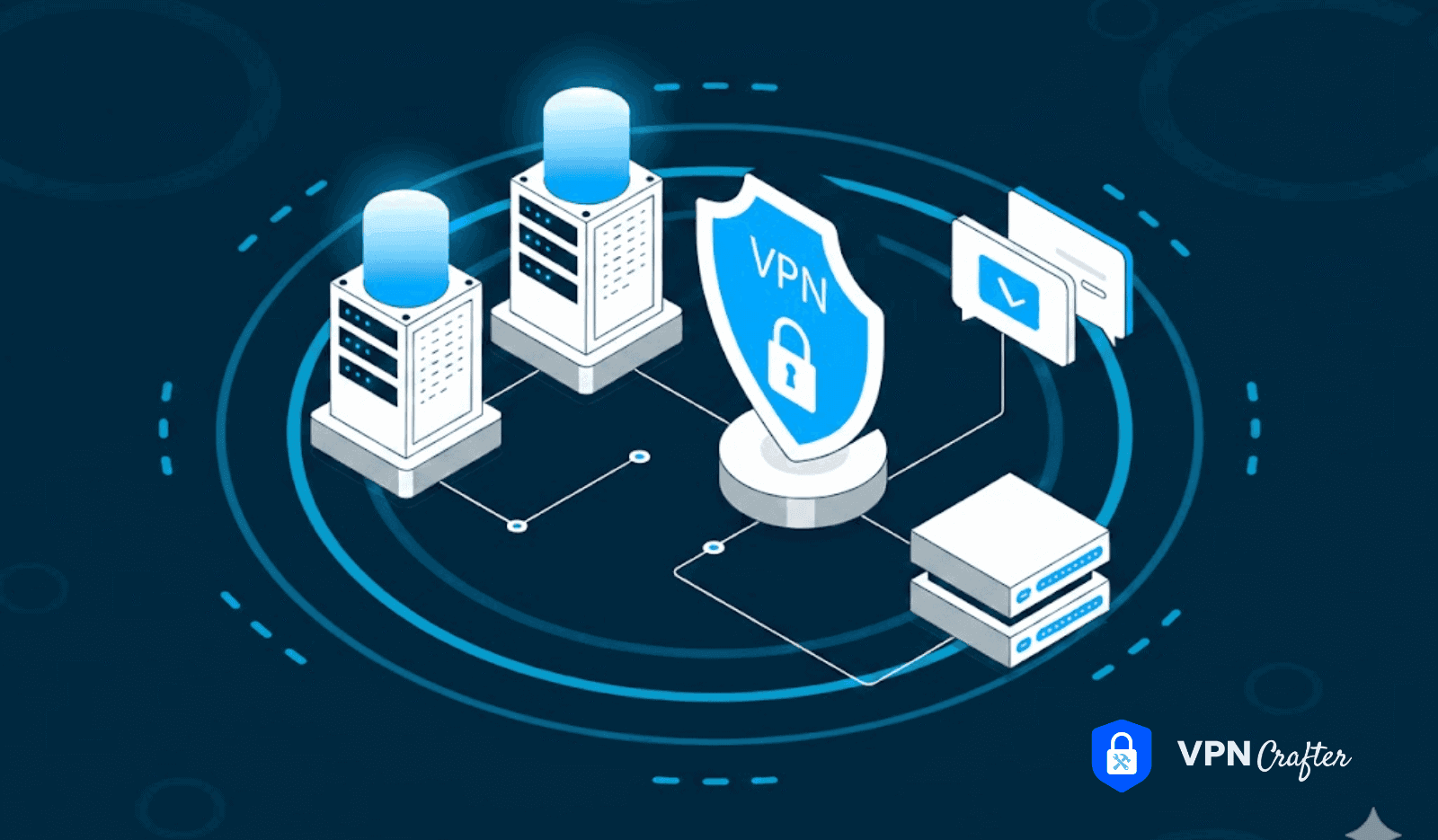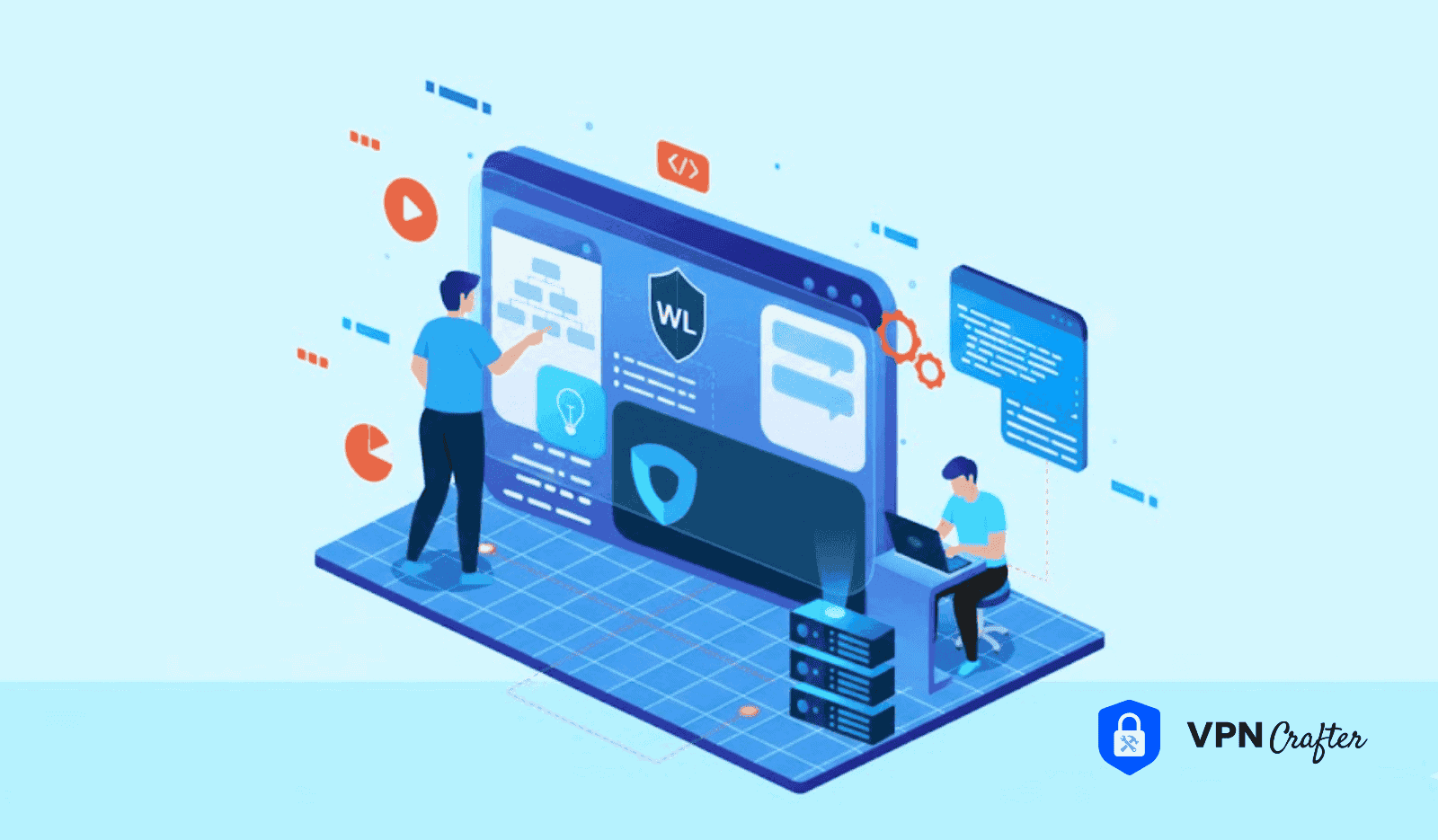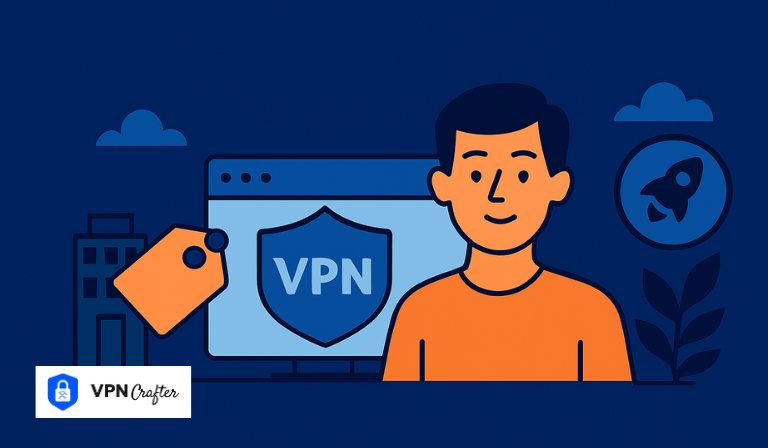Ever noticed how websites seem to know where you are?
That’s not magic — it’s your IP address doing the talking. It quietly shares your location and device info with every site you visit. While most people scroll on without giving it a second thought, others are starting to ask smarter questions about online privacy. One question pops up a lot: do VPN change IP addresses?
I remember wondering the same thing when I first started using VPNs. I just wanted to stream a show that wasn’t available in my country, but I ended up learning a lot more about how the internet actually works. That simple question — “will VPN change my IP address?” — opened the door to understanding online tracking, geo-blocks, and the quiet ways our data travels without us realizing.
And it doesn’t stop there. Some users want to know, “Does VPN change IP address every time I connect?” Others, especially those using phones, ask, “How often does an IP address change on a phone?” These questions are more common than you’d think.
So, if you’re curious, you’re in good company. In this article, we’ll walk through how VPNs interact with your IP, when and how the changes happen, and what that means for your day-to-day browsing — all in plain English.
What Is an IP Address?
Before answering do VPN change IP address, it helps to understand what an IP address actually is. Think of it like your digital home address. It’s a unique string of numbers that identifies your device on the internet. Every time you visit a website, stream a video, or check your email, your IP tells the internet where to send the information back.
Just like your street address helps people find your house, your IP address helps websites find your device. It reveals your approximate location, your internet service provider (ISP), and other details most users never think twice about. But for people who care about privacy, this is where things start to get uncomfortable.
That’s why so many internet users begin searching: “will VPN change my IP address?” It’s a fair concern. Your IP doesn’t just connect you to websites — it also leaves a trail of where you’ve been online. And if you’re using a phone, you may even wonder how often does IP address change on phone, especially when switching between Wi-Fi and mobile data.
So, when someone asks “does VPN change IP address every time I connect?” they’re really asking how much control they have over that digital trail. That’s exactly what we’re going to explore next.
Do VPNs Change Your IP Address? Definitely. Here’s What Really Happens
So, let’s clear something up right away—yes, VPNs do change your IP address. That’s not just a nice feature. It’s kind of the whole point.
When you connect to the internet without a VPN, your IP address comes from your internet provider. That number tells websites where you are, roughly, and who your provider is. Now, once you turn on a VPN, that changes. The VPN acts like a middleman, replacing your real IP with a new one that belongs to their server. So instead of showing your actual location, you could be popping up in another city, or even another country entirely.
People often ask, “Will VPN change my IP address every time I use it?” In most cases—yes. But it depends a little on the VPN service you’re using. Some assign a new IP each time you connect. Others might give you the same one until you switch servers. There’s no one-size-fits-all answer, but either way, your real IP stays hidden.
Another thing I hear a lot is, “Does VPN change IP address every time I reconnect?” With most quality VPNs, it does. That’s a built-in privacy feature. In fact, some even rotate your IP regularly while you’re still connected. It’s like digital camouflage that keeps moving.
Now, what about your phone? How often does IP address change on phone with a VPN? Well, mobile networks are a bit more dynamic. If you’re jumping between Wi-Fi and mobile data, your IP can shift even without a VPN. Add a VPN to the mix, and your phone gets assigned a whole new IP based on the server you pick. Switch servers? You’ll get a new one again. Simple as that.
Bottom line? If you’re using a VPN—even on your phone—you’re not just masking your IP. You’re changing it, often more than once. And that goes a long way in keeping your online activity private.
Why Changing Your IP Address with a VPN Actually Matters
Changing your IP might sound like a small thing. But in reality, it can make a huge difference in how you experience the internet.
Let’s say you’re working remotely and want to access files or services that are only available in a certain country. Or maybe you’re a student trying to reach a website that’s blocked on campus Wi-Fi. A VPN steps in, gives you a different IP address, and suddenly those restrictions are gone. You’re not stuck anymore.
This is where people start asking: “Will VPN change my IP address every time I connect?” It depends on the provider, but most reliable VPNs do. They use rotating IPs so that each session feels fresh and secure. If you’re using a server in Germany today, and switch to one in Canada tomorrow, your IP follows suit. It’s like having a digital passport to the world.
Now here’s another angle to consider: how often does IP address change on phone if you’re using a VPN app? Honestly, mobile usage is where VPNs shine even more. Your IP may switch as you hop between networks—like from coffee shop Wi-Fi to mobile data—and your VPN can mask each one along the way. It’s not just about hiding where you are. It’s about protecting what you do while you’re there.
So yes—do VPN change IP address? Absolutely. But more than that, it gives you control. In a world that constantly tracks, logs, and filters what you can access, being able to shift your digital identity is a kind of freedom not everyone realizes they need… until they do.
How Often Does a VPN Change Your IP Address?
Here’s something most people don’t think about until they actually use a VPN—how often does the IP address change? It’s a fair question. If you’re asking, “Do VPN change IP address?” or “Will VPN change my IP address every time I use it?” the short answer is: usually, yes. But there’s more to it.
Most VPNs assign a new IP address every time you connect. That’s part of how they protect your privacy. It’s like walking into a coffee shop wearing different clothes each time—people might recognize your voice, but your appearance keeps changing. This is great for avoiding trackers, dodging targeted ads, or just staying anonymous online.
Some providers go further and switch your IP during a session. Not everyone does this, but it’s an extra layer of stealth. So if you’re wondering, “Does VPN change IP address every time?”, in many cases it does—either at the start of a session or periodically during one.
And what about mobile? Phones are constantly shifting between Wi-Fi and data. Add a VPN into that mix, and you’ll find your IP can change even more frequently. If you’ve been asking, “How often does IP address change on phone?”, the answer is: it can be pretty often, depending on how your phone connects and what your VPN is doing in the background.
So yes, VPNs do change your IP address, and depending on how you use them, they might do it more than you realize.
When a VPN IP Change Might Not Work Fully
Sometimes, using a VPN feels like putting on a disguise—until you realize your real identity is still peeking through. This can happen when your IP address leaks, even though the VPN says you’re protected. It’s a frustrating moment, especially if you’re counting on that change to keep you anonymous.
IP leaks often happen because of unstable connections, outdated VPN apps, or weak default settings. Some free VPNs promise a lot but fall short when it comes to actual protection. They might not update your IP address every time or may expose it during a brief network hiccup. And then you find yourself asking, “Wait, does VPN change IP address every time—or just sometimes?”
If you’re serious about keeping your location private, premium VPNs are the way to go. They offer stronger encryption, consistent IP changes, and tools like kill switches that instantly cut off your internet if the connection drops. Free options might be okay for casual browsing, but if you’re doing anything sensitive, it’s worth investing in something more reliable.
How to Check If Your IP Has Changed
Not sure if your VPN is doing its job? It only takes a minute to find out. Before you turn it on, visit a site like “What’s My IP” and note your address. Then, connect to the VPN and refresh the page. If the number changes—and the location looks different—you’re good. If not, there’s an issue worth looking into.
On mobile, the story can be a bit more dynamic. Phones hop between Wi-Fi and mobile data all day long. If you’ve ever asked, “How often does IP address change on phone?”—the answer is: it depends. Some phones change IPs frequently, especially if you’re moving between networks. With a VPN running, you may get a new address each time the connection refreshes. That’s a plus for privacy, but it also means you should double-check that your VPN reconnects every time.
Final Takeaway
Here’s the bottom line: VPNs do change your IP address, and that’s one of the simplest yet most powerful ways they protect your privacy. Whether you’re trying to stay hidden from advertisers, avoid region restrictions, or just browse without being watched—your IP is the first thing that needs to go.
Still, it’s not just about changing it once. You want a VPN that does it reliably, without leaks or drops. If you’ve been wondering things like “Will VPN change my IP address every time?” or “Does it work the same on phones?”—now you know the answer is yes, as long as you’re using a good tool.
🔒 Try Cure VPN if you’re looking for dependable, private, and consistent protection. It’s built to keep your IP secure—every time, everywhere.





